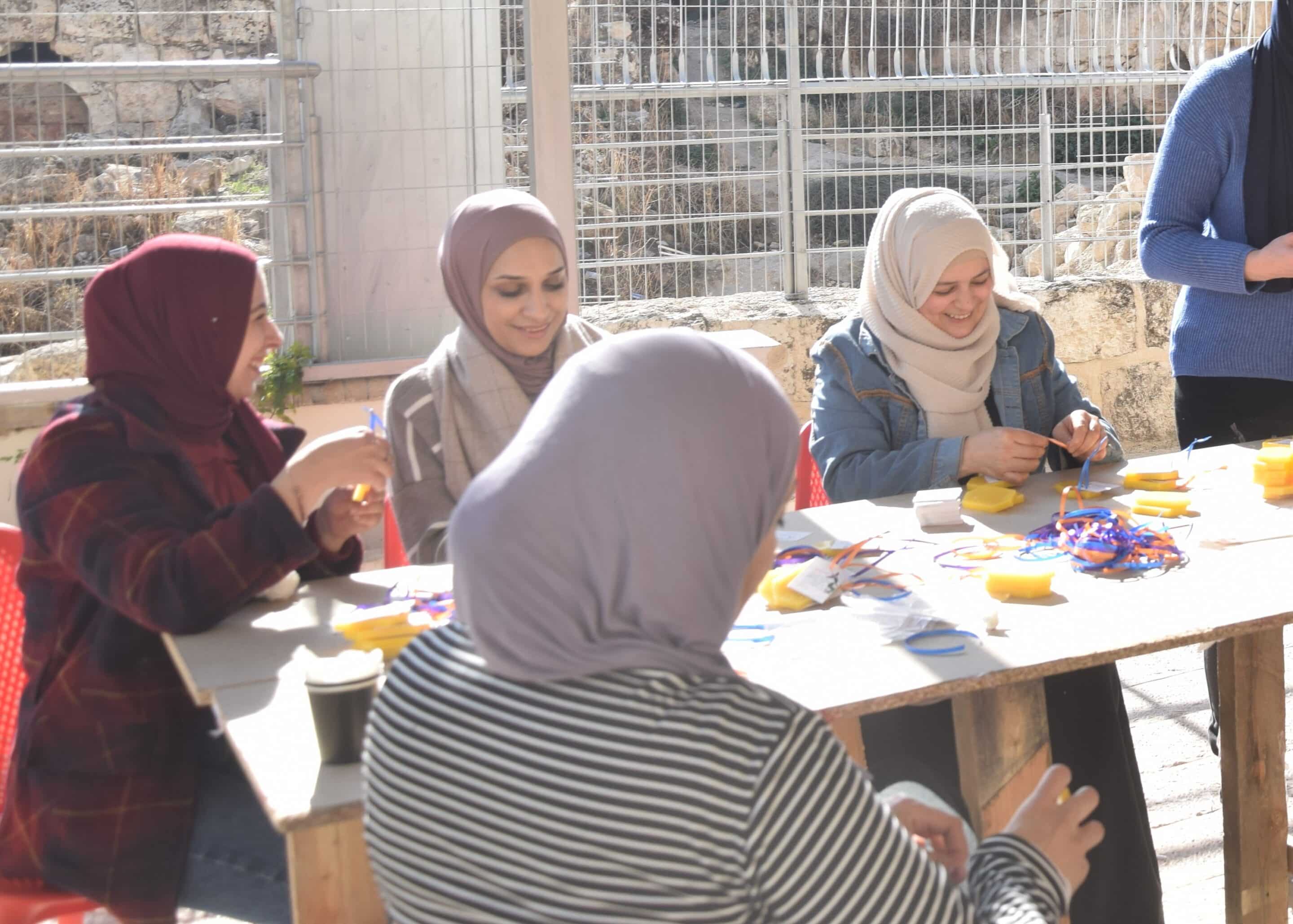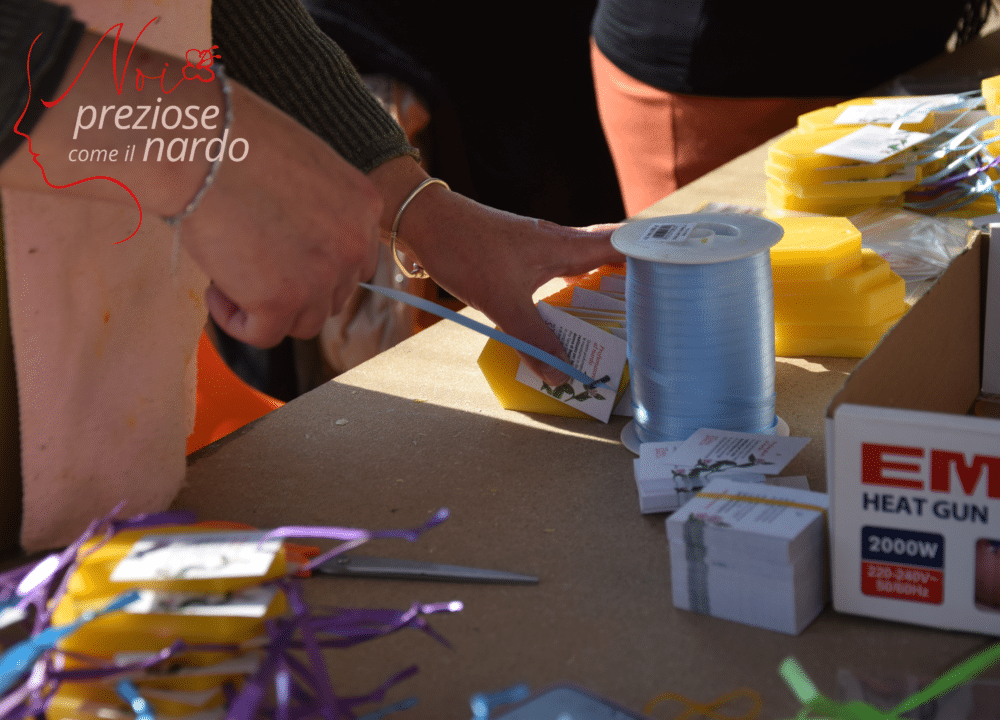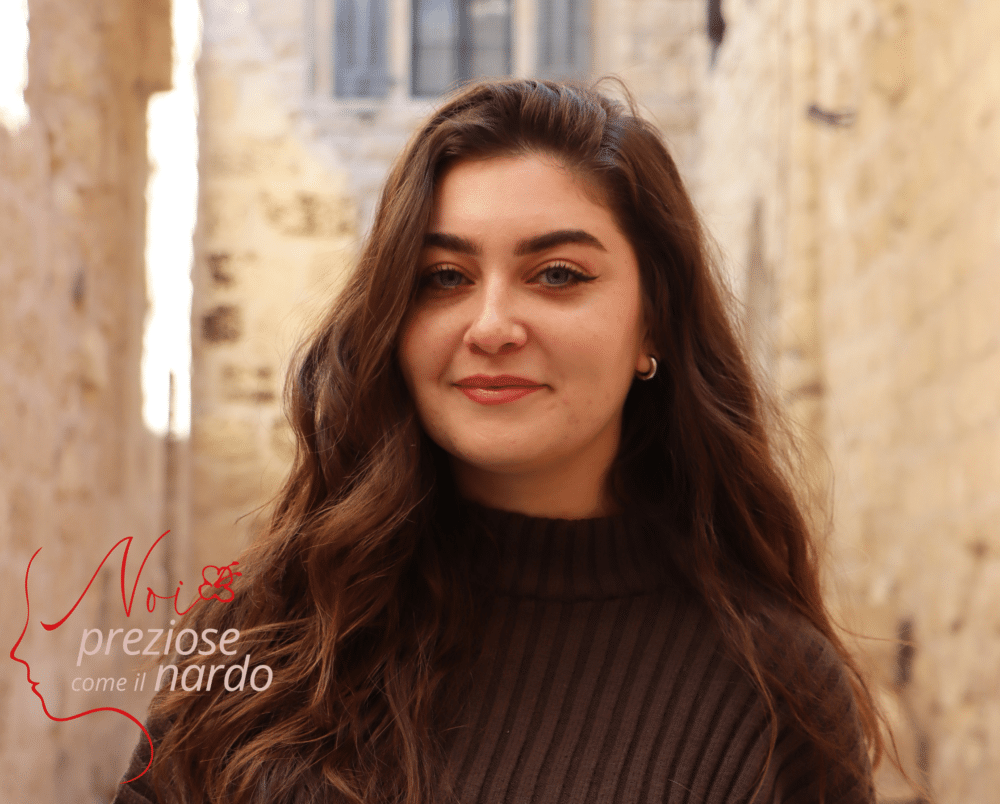
Alessia and Alina: precious as nard
“The importance of involving the local community is not just about giving people a job or a salary—it’s about giving them dignity, identity, and hope.”
Alessia and Alina share their stories: the loss of a loved one, and the hope for a different future—for themselves and for all of Palestine.
Alina
“My name is Alina, I’m 50 years old, and I’m from Ukraine. I’m Muslim, married, and I have five children—two daughters and three sons. Not long ago, one of my sons was killed by Israeli soldiers.”
Alina hides her face—she doesn’t want to be seen or photographed. Sharing her story is already a generous gift; images or her real name would be too much. “Alina” is a pseudonym, a veil behind which the real woman tells her story softly.

Ukraine is her homeland, but today, Palestine is her home. “My husband is Palestinian, but he came to Ukraine to study—that’s where we met. We lived in two different countries for a while, but eventually we settled in Palestine with our children, near Bethany.”
Alina studied computer science at Al Quds University in Abu Dis, but her true passion has always been art. “I’m good at drawing and embroidery. When my daughter told me about the candle-making workshop, I was so happy. I’ve always loved candles—their fragrance, and the atmosphere they create when lit.”
Working in the small workshop in Bethany is a perfect fit for her. “I only work two days a week because the rest of the time I teach Russian at a Russian Orthodox school, but even in just those few days, this work gives me so much. Especially now, since my husband lost his job after the escalation of violence on October 7, 2023. Even a small income really helps.”
Beyond the pay and the creative outlet, the work is a vital source of emotional and psychological support. “Since my son died, my emotional state has completely changed. Leaving the house to go to the candle lab helps me a lot. I almost don’t even see it as work because I enjoy it so much—I’ve met so many new people and made friends with my coworkers. When I go to the candle workshop, my day is full of joy.”
Alessia
“I suddenly found myself without a job, with an uncertain future due to political events, and my father’s health was rapidly deteriorating. Sadly, he passed away on February 8, 2024.”
“My father, architect Osama Hamdan, was the coordinator of the Bethany project and worked on it until just two months before his death. After he passed, I started working there myself as coordinator of activities with women.”
Alessia’s bright blue eyes reflect both love and pride as she speaks of her father. Her face radiates both grief and admiration—sorrow for the loss, but pride in being able to carry forward a part of his work and his mission, which he believed in deeply.

“I’m 26, born in Turin, and I now live in Jerusalem. My father was Palestinian and Muslim; my mother is Italian and Christian.” From her very first words, it’s clear how much value Alessia places on her multicultural heritage. Perhaps that’s why she has always been curious about how people communicate. “I studied communication science at the University of Perugia. Then, in 2021, I returned to Jerusalem and started working in a travel agency.”
But tourism is a fragile industry, especially in a politically and socially unstable Middle East. “In October, I lost my job because there were no more tourists. The tourism sector was hit hard—many businesses had to shut down. At the same time, my father was battling cancer. It was an extremely difficult period—I was unemployed, the political situation was deteriorating, and my father’s health was getting worse.”
In the courageous women who came to work as artisans—rolling up their sleeves and finding the strength to start again—Alessia found hope and inspiration to keep believing in the importance of her work in Palestine.
“A strong bond has grown between me and these women,” Alessia says, “and despite the age difference, a beautiful friendship has formed. I deeply respect and admire their strength and determination—the way they can still smile despite the hardships they face every single day.” Like flowers blooming through hardship, the women of Bethany are reborn from their struggles, more vibrant than ever—like nard, which releases its sweetest fragrance only when crushed.
Alessia also feels a deep personal connection to this project: “It means a lot to me because it’s tied to my father’s profession.” Osama Hamdan worked with a vision his daughter now carries forward: “My father always said, ‘The importance of involving the local community is not just about giving people a job or a salary—it’s about giving them dignity, identity, and hope.’”
For Easter, Pro Terra Sancta commissioned thirty thousand nard-scented diffusers from the little Bethany workshop to send by post to donors. More than just a gift to those who support Palestine and the Holy Land—a way to bring them a fresh fragrance and a sense of closeness—it was a valuable opportunity for the artisans to challenge themselves. Thanks to this order, they had months of work, spending part of each day carefully selecting fragrances, pouring wax into molds, and earning a wage. A job is vital to help fill the void left by war, by restrictions on movement, and by the collapse of the tourism industry that has left so many Palestinian workers without employment.